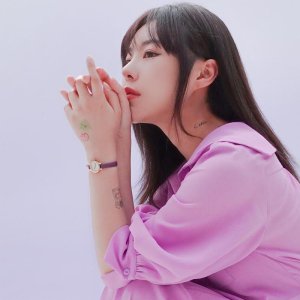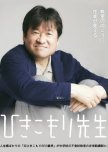Where sunshine and rain meet to bring a rainbow
No spoilers, proceed safely. :)
“I am alive. Uh...I am here right now. I am alive. That's it. That’s all I'm doing.”
Hikikomori Sensei follows the story of Uwashima Yohei, who is a “hikikomori survivor”. Eleven years ago, he was betrayed by his friend who put him in debt and thus began his life as a “hikikomori.” Uwashima Yohei became intensely distrustful of society and started withdrawing from it.
When he finally steps out of his room, he opens a yakitori shop with "No Service" posters on it and forbids customers from talking to him. He is then approached by the principal of the school he had once attended and thus begins his journey as a “Sensei,” as a teacher of the truant students who refuse to attend school, students who are also in a sense, hikikomori.
“When you are in... in pain you don’t have to come to school.”
Hikikomori Sensei is not a story of a man who wins over the hearts of students and blah blah blah. No. Hikikomori Sensei felt very real. It shows how truancy amongst students takes root; students who are on the verge of breakdown. But you know what's the worst part? They have to show up to school with a bold and merry face, a front that they are not in pain. The only thing worse than being in pain is to show that you are not in pain. It shows how an ambitious school principal wants to maintain a zero truancy, zero bullying model in his school but instead of solving the problems he tries to suppress them.
And then comes our Hikikomori Sensei.
“If you can't tell the truth, your heart... your heart, uh... becomes painful.”
Concentrating on school bullying caste systems, parental negligence, and a system which turns a blind eye to students, Hikikomori Sensei is an authentic representation of issues which plague the students. The drama also uses a beautiful combination of warm aesthetic cinematography, a bit different for each of the three students the show mainly concentrated on. Like most Japanese dramas, there are great side-characters too who contribute to the complexity and reveal the various sides of human society.
“Can we...stop giving up now? Principal. I learned from the kids, I learned from the kids...at this school that it's okay to think "I can do it.”
A heartwarming watch and a healing story in the truest sense of it, Hikikomori is what I would call an essential informative watch recommended for people of all ages. 8.0/10.
“I am alive. Uh...I am here right now. I am alive. That's it. That’s all I'm doing.”
Hikikomori Sensei follows the story of Uwashima Yohei, who is a “hikikomori survivor”. Eleven years ago, he was betrayed by his friend who put him in debt and thus began his life as a “hikikomori.” Uwashima Yohei became intensely distrustful of society and started withdrawing from it.
When he finally steps out of his room, he opens a yakitori shop with "No Service" posters on it and forbids customers from talking to him. He is then approached by the principal of the school he had once attended and thus begins his journey as a “Sensei,” as a teacher of the truant students who refuse to attend school, students who are also in a sense, hikikomori.
“When you are in... in pain you don’t have to come to school.”
Hikikomori Sensei is not a story of a man who wins over the hearts of students and blah blah blah. No. Hikikomori Sensei felt very real. It shows how truancy amongst students takes root; students who are on the verge of breakdown. But you know what's the worst part? They have to show up to school with a bold and merry face, a front that they are not in pain. The only thing worse than being in pain is to show that you are not in pain. It shows how an ambitious school principal wants to maintain a zero truancy, zero bullying model in his school but instead of solving the problems he tries to suppress them.
And then comes our Hikikomori Sensei.
“If you can't tell the truth, your heart... your heart, uh... becomes painful.”
Concentrating on school bullying caste systems, parental negligence, and a system which turns a blind eye to students, Hikikomori Sensei is an authentic representation of issues which plague the students. The drama also uses a beautiful combination of warm aesthetic cinematography, a bit different for each of the three students the show mainly concentrated on. Like most Japanese dramas, there are great side-characters too who contribute to the complexity and reveal the various sides of human society.
“Can we...stop giving up now? Principal. I learned from the kids, I learned from the kids...at this school that it's okay to think "I can do it.”
A heartwarming watch and a healing story in the truest sense of it, Hikikomori is what I would call an essential informative watch recommended for people of all ages. 8.0/10.
Esta resenha foi útil para você?


 1
1 10
10 1
1























